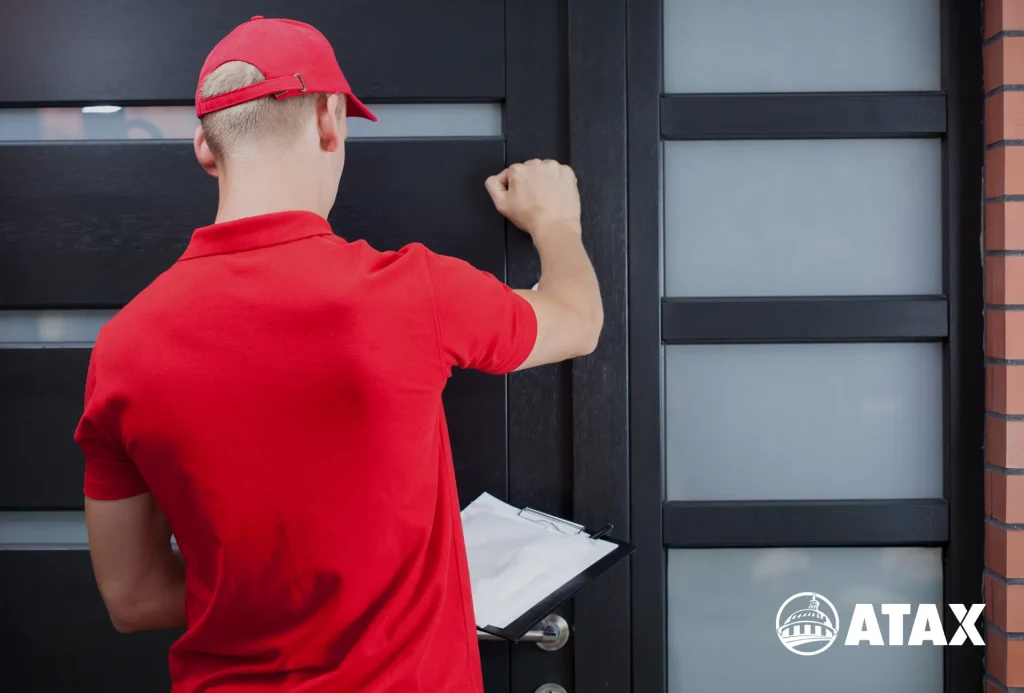General
The economic uncertainty surrounding COVID-19 is challenging for non-profits. The CARES act will help guide your organization through these difficult times.
Within a few short months, the global coronavirus pandemic has changed how everyone on the planet lives their lives. The effects are far-reaching, and the need for social distancing and restrictions on our lives has had a dramatic knock-on effect on the economy.
On March 27, 2020, the US president, Donald Trump, signed off on the Coronavirus Aid, Relief, and Economic Security Act (CARES Act). But, what is the CARES ACT 2020? And, how will it affect your non-profit organization?
The stimulus package is designed to help every corner of the US economy. This includes the charitable and non-profit sector.
In this CARES act guide for non-profits, we’ll discuss eligibility for non-profits and tax-exempt organizations of every size.
If you have any questions about the CARES Act – Non-Profit, please reach out to our program coordinator Tonya McLane at mclanet@loyaltybrands.com with any questions.
1. Credits
This CARES ACT Reference guide will help you to understand the various credit options that may be open to your non-profit organization.
Before you make an application, ensure that this route is the right on for you and that it will not prevent you from applying for another route that you may be better suited to.
Sick and Family Leave Credits
As of April 1, 2020, all non-profit organizations with fewer than 500 employees need to pay their employees their full wages is they are unable to work because of COVID-19-related quarantine measures or have symptoms of the virus.
This can be up to $200 per day or $2,000 in total.
For those who have to take time off to take care of someone with coronavirus or have to take care of children whose school has been closed, there is also support.
Employers are obliged to pay two weeks of sick leave to employees who have been on their payroll for at least 30 days.
Employees who were laid off on, or after, March 1, 2020, but have been rehired before the end of the year by the same employer won’t need to meet the 30-day requirements.
Employee Retention Credit
As part of the CARES act, eligible employers will be provided with a refundable payroll tax credit that covers the employer portion of the Social Security tax. This will be the equivalent of 50% of all qualified wages, which will be paid to employees between March 13, 2020, and December 31, 2020. The maximum amount per employee tax credit is $5,000.
The non-profit organization must have been running in 20202 and have had their operations either fully or partially closed down due to government restrictions to prevent the spread of coronavirus.
Alternatively, they must have seen at least a 50% reduction in revenue compared with the same quarter in 2019.
For non-profit employers that employ more than 100 full-time members of staff, the credit can only be used for wages of employees who are unable to work.
The Employee Retention Credit is only available to organizations that are not receiving any other form of a loan under the Paycheck Protection Program.
2. Loans
The CARES act provides a variety of different loan options that will suit the needs of different non-profits.
Follow this CARES act guide for non-profits to check the eligibility and suitability of the different loan types before you make an application.
Paycheck Protection Program (PPP)
One of the main elements of the CARES Act relates to the creation of a Paycheck Protection Program.
This program is administered by the Small Business Administration and will see loans being made via commercial lenders such as banks, as well as credit unions.
These loans will be available through to June 30, 2020, and will be guaranteed 100% by the SBA.
The CARES Act guide for non-profits requires that the following eligibility criteria are met:
- Have fewer than 500 employees. This includes both full and part-time staff.
- Be registered as a charity
- Were in operation on February 15, 2020, and have employees on the payroll at that time.
The loans will be awarded in good faith that the organization making the application is experiencing economic uncertainty due to the coronavirus pandemic.
The maximum loan amount will be the lesser amount between $10 million or 2.5 times the average monthly payroll costs over the year prior to the date that the loan is made.
The maximum payroll costs are $100,000 per year per employee. Payroll costs may include:
- Salary, wages, and commissions
- Benefits such as vacation, parental leave, or sick leave
The loan will need to be repaid within two years, and the repayments are deferred for the first six months.
There may be options to forgive part of the loan, and it will not be regarded as an income, providing it is spent within eight weeks on specific expenses. These include:
- Payroll cost
- Making rent repayments on a property that has been leased prior to February 15, 2020
- Covering interest payments on mortgages that existed prior to February 15, 2020
- Payment of utility bills on services that have been in place since before February 15, 2020.
To meet the eligibility for loan forgiveness, the organization will need to keep the same average number of employees. The forgiveness will be proportionally reduced when the number of fulltime employees is lower, or if salaries are decreased by more than 25% for employees who earnt less than $100,000 in 2019.
Economic Injury Disaster Loans (EIDL)
This type of loan is open to business owners, including private non-profits that are NGOs or those that are recognized by the IRS as being exempt from federal taxes.
Due to long-standing SBA policy, the EIDL application will ask whether an organization is engaged in lobbying. This applies to organizations that are primarily involved in political or lobbying activities. This means, where lobbying accounts for more than 50% of the organization’s activities and expenses, they will not be eligible.
EIDLs of up to $200,000 won’t need to have a personal guarantee. Those above this amount will need to a personal guarantee.
There will be no collateral required for loans up to $25,000. Where the loan is greater than this amount, a general security interest in the assets can be used instead of real estate.
The EIDL is intended to cover payroll and operating costs. It will only cover expenses that would have been met outside of the COVID-19 crisis. This type of loan should not make up for lost profits, and they cannot be used to refinance the organization, pay off federal debts, pay dividends, or make building repairs.
The loans can be up to $2 million and can be repaid over 30-years with an interest rate of 2.75%. The first payment can be deferred for one year.
There is also an Economic Injury Disaster Advance Loan, which is open to private non-profits, NGOs, and tax-exempt organizations with a maximum lending amount of $10,000. This does not need to be repaid if it spent covering paid leave, making mortgage or rent payments, and repaying debts that cannot be met due to the current financial situation.
EIDA loan applications need to be made directly to the Small Business Association.
Economic Stabilization Fund
For organizations that have between 500 and 10,000 employees, a direct loan can be made via the bank to non-profits.
This type of loan will have no more than 2% interest on it, and there will be no interest payments due within the first six months.
In order to be eligible for an Economic Stabilization Fund loan, a borrower will need to meet the conditions of the loan, cannot have had relief in the form of loans or guarantees under the CARES Act, must retain at least 90% of their workforce at full pay throughout September 2020, restore all pay and benefits to workers within four months of the coronavirus crisis.
3. More Relevant Info for Non-Profits
In addition to the tax credits and loans available to non-profits, there are also additional measures that will ease the stress caused by the global coronavirus pandemic. These include amendments to the way that donations are taxed, the ability to defer payroll taxes, and additional support for the unemployed.
Payroll Tax Deferral
Organizations will be able to defer payments on their portion of the Social security payroll taxes that would normally be due between March 27, 2020, and December 31, 2020.
If an organization makes the decision to defer their portion of payroll taxes, then they will need to repay this in a timely manner. 50% of tax will be due by December 31, 2020, and the remaining 50% is due by December 31, 2021.
There is no option to defer the employer’s share of Medicare payroll taxes, and this must be paid on time.
Self-Funded Non-profits and Unemployment
Where self-funded non-profits have needed to lay-off their employees, the federal government will cover half of the cost of unemployment benefits and make this payment to the state.
The intention is that any non-profit employers would then be reimbursed by the state.
Where workers have been unable to work due to the COVID-19 public health crisis, weekly payments of up to $600 will be provided for up to four months. This is in addition to any state unemployment program and is relevant to non-profit organizations.
Information for Donors:
The CARES Act includes a $300 “Above the Line” Charitable Contribution Deduction and Relaxation of the Charitable Contribution Limitation.
This means that when making donations of up to $300, all taxpayers will be able to claim a charitable contribution deduction, not just those who would usually itemize deductions when filing their tax returns.
For taxpayers that do itemize deductions, there is also an increase in the percentage in the amount of a donor’s adjusted gross income that can be offset by charitable contributions. The limitation is raised from 60% to 100% for individual taxpayers, and from 10% to 25% for corporations.
These charitable contributions need to be made in cash and cannot be made to a supporting organization, a private non-operating foundation, or a donor-advised fund.
4. Next Steps
Understanding the eligibility criteria for the credits and loans relating to non-profit organizations affected by the COVID-19 pandemic is essential.
Does this apply to you?
Before you apply to any of the loans and credits referred to in this CARES Act Guide for Non-Profits, you should check your eligibility.
Your eligibility may depend on the size of your organization, whether it is engaged in lobbying, and how you have been specifically affected by the coronavirus outbreak.
You will need a clear understanding of how your organization has been affected by the COVID-19 public health crisis, and be able to evidence this through clear accountancy.
Are your documents/financials up to date?
Before you start to make applications for loans and credits under the CARES Act, are your accounts up-to-date?
Many of the credits and loans covered in the CARES Act guide for non-profits will require you to have a clear picture of your previous payroll.
Before you make an application, you should ensure that all of your payroll and tax returns are in order so that you can make a clear assessment of your financial situation.
Reach out if you need assistance!
For the specific requirements and to apply for any SBA loans, visit the Small Business Association website.
During the pandemic, it is essential that your tax returns are filed and that your payroll is processed, as this will help you get the support needed to maintain your employee’s income. You may need to seek out bookkeeping assistance.
At ATAX, we’re here to help you with all of your bookkeeping needs. Whether you’re preparing a CARES funding application, or are needing assistance with filing your 2018 or 2019 taxes, we can help.
To find out more about our services, call to find an office nearest you at 1(866) 999-2829.
If you have any questions about the CARES Act – Non-Profit, please reach out to our program coordinator Tonya McLane at mclanet@loyaltybrands.com with any questions.







